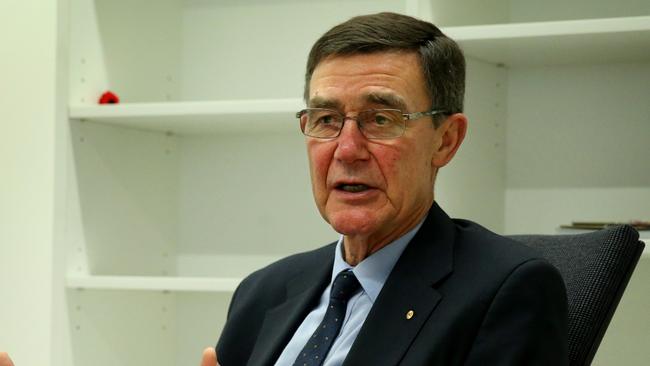Plot to rein in university chief salaries
Chancellors plan code to govern uni chiefs’ pay as vice-chancellors’ remuneration tops $1m on average.

Chancellors are planning a new code to govern university chiefs’ pay in response to public unease at vice-chancellors’ remuneration, which topped $1m on average last year.
The voluntary code, expected to be approved at the first meeting of the University Chancellors Council in 2021, will require a new level of disclosure for vice-chancellors’ pay, revealing for the first time what bonuses and other benefits they receive as part of their remuneration.
While some chancellors believe the code will restrain vice-chancellor pay levels, it does not impose limits on their remuneration.
Chancellors, who are the university equivalent of the chairmen of corporate boards, are split on whether vice-chancellors are overpaid.
Many chancellors from a public sector background believe pay levels are too high. However, chancellors with a business background are more at ease with pay levels since they compare them with chief executive packages.
While some vice-chancellors accept that their salary levels have exceeded public expectations, others are fighting hard to preserve their pay. The issue is another flash point in the tense relationship between chancellors and vice-chancellors which led to the major review now under way of university peak body Universities Australia, revealed by The Australian last week.
The code follows a decision made two years ago — when former Prime Minister’s Department head and Western Sydney University chancellor Peter Shergold was the convenor of the UCC — to set up a working group on the remuneration of vice-chancellors, chaired by University of the Sunshine Coast chancellor and former defence force chief Sir Angus Houston.
An annual benchmarking report was commissioned from remuneration consultants Mercer, which compares vice-chancellors’ pay levels to other public sector positions.
The disquiet among some chancellors about vice-chancellor’s pay is already influencing the packages being offered to new appointments.
The new University of Queensland vice-chancellor, Deborah Terry, who started in July, accepted a smaller package than her predecessor, Peter Hoj, whose 2019 remuneration was more than $1.2m.
When Rufus Black was appointed vice-chancellor of the University of Tasmania in 2018, both he and the chancellor, former Tasmanian premier Michael Field, felt the salary options recommended by the university’s remuneration consultants were too high. Professor Black decided to donate $100,000 a year to student scholarships from his package, which the university’s annual report says was between $975,000 and $989,999 in 2019.
It is understood that the incoming vice-chancellor of the Australian Catholic University, Zlatko Skrbis, will be paid less than his predecessor Greg Craven, who enjoyed a package worth more than $1.35m in 2019.




To join the conversation, please log in. Don't have an account? Register
Join the conversation, you are commenting as Logout